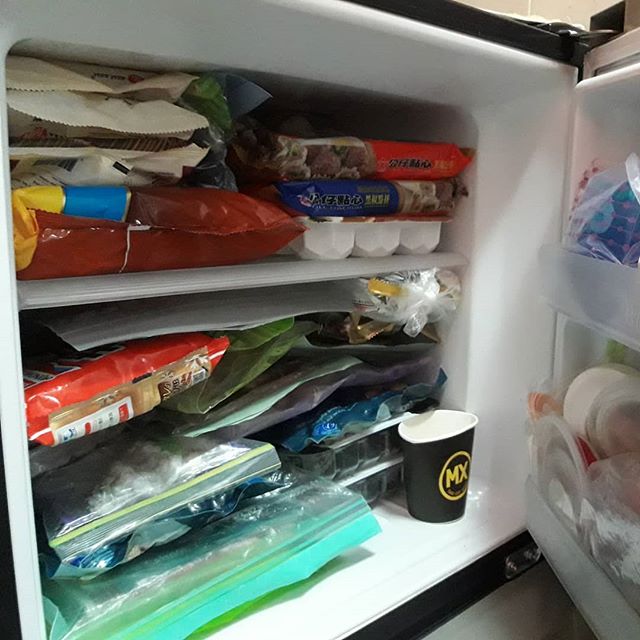Grain Reserve
In preparing an anti-epidemic meal, in addition to the shelf life of the ingredients, the nutritional value of the food must also be considered. Because of the need to strengthen resistance and avoid illness during this period, Chen Jinzhi has the following suggestions:
Grain Reserve List
1. Fruits and vegetables-thick-skinned fruits
The first choice of food storage list for epidemic prevention must be fruits and vegetables! Fruits and vegetables contain rich vitamins and minerals. It is recommended to buy a variety of fruits and vegetables with different shelf life. For example, broccoli and melons are less rotten than cabbage, and can be stored for 3 to 5 days. If you can’t buy fresh vegetables, you can consider snow and dried vegetables. Seaweed can be stored for a long time to help supplement fiber and other nutrients. As for the fruit, you can choose a thicker skin. Because the skin layer of the fruit helps prevent rot, oranges, apples, and melon can be stored for a long time. In contrast, berries need to be consumed within a short time.
2. Eggs-provide protein and iron
It is high in protein and can usually be stored for 2 to 3 weeks or longer. Eggs help provide protein, iron and vitamin D when you ca n’t go out and buy fresh meat.
3. Beans-rich nutrition cans can be stored for years
Beans are a must for storing grains. Chickpeas, kidney beans, etc. are usually canned and can be stored for 2 to 5 years. Supermarkets and southern stores also have vacuum-packed, dried beans, such as red beans, mung beans, eyebrow beans, kidney beans, etc. The shelf life is in years. Beans are rich in protein and water-soluble fiber, as well as beneficial nutrients such as vitamin B, magnesium, iron, and zinc, which help strengthen the immune system during the epidemic prevention period.
4. Kernels, Seeds and Dried Fruits-Camp Snacks
Nuts and seeds are healthier snacks, with a shelf life of 4 to 6 months. After unpacking, they can be stored for a long time if properly stored in airtight cans. It also contains many plant-based proteins and rich nutrients, such as vitamin E and other fat-soluble vitamins, and flaxseed and peaches also contain beneficial fatty acids Omega-3. A moderate daily intake of nuts, which contains unsaturated fatty acids that help maintain good cholesterol levels in the body, helps reduce the risk of cardiovascular disease. As for the nut-based sauces such as peanut butter and almond butter, the storage period is longer, and they have nutritional value. They can be used as food to supplement calories and nutrients on days when food is insufficient.
Dried fruit should be carefully selected. Traditional methods have high dry sugar content, especially berries may add more sugar to neutralize the sour taste. At present, there are some freeze-dried dried fruits that retain more nutrients and less added sugar. However, dried fruits have lower levels of vitamin C than fresh fruits.
5. Canned and frozen meat-low sodium
Luncheon meat and tempeh are not recommended because they have high fat and sodium. It is recommended to choose sardines, tuna, mackerel, chicken, etc., and compare the nutrition label, carefully choose the lower sodium style. In addition, snow meat is generally low in sodium and can be stored for a long time.

6. Rice and cereals-vacuum packaging preferred
Generally, white rice can be stored for 3 to 6 months, and vacuum packaging can be stored longer. After opening, keep it in a cool place to prevent rice worms from breeding. If the white rice has been sold out, you can also buy other cereals, such as indica rice, red rice, barley, wheat, oats and other options, while spaghetti and macaroni can be stored for half a year and can also be used as grain storage.
7. Milk-non-refrigerated milk has a longer shelf life
For calcium supplements, there are many different milk options. The roof-shaped boxed milk commonly used in supermarket freezer shelves on weekdays is pasteurized and has a short shelf life of about 1 to 2 weeks. The unopened milk does not need to be refrigerated and the square boxed milk is UHT (UHT ), The shelf life is measured in months, and can even be as long as one year. As for vegetarians, you can purchase oat milk, almond milk and other calcium-based plant milk.
To save storage space in your refrigerator, consider milk powder. There are packaged grain brewed beverages on the market, such as flax seed nut black sesame drink, oat barley pulp, whole grain soy milk oatmeal breakfast, etc., a single pack contains soybean powder or milk powder, mixed with wheat, nuts, etc., has been Contains multiple nutrients.
Source: 明報健康網




